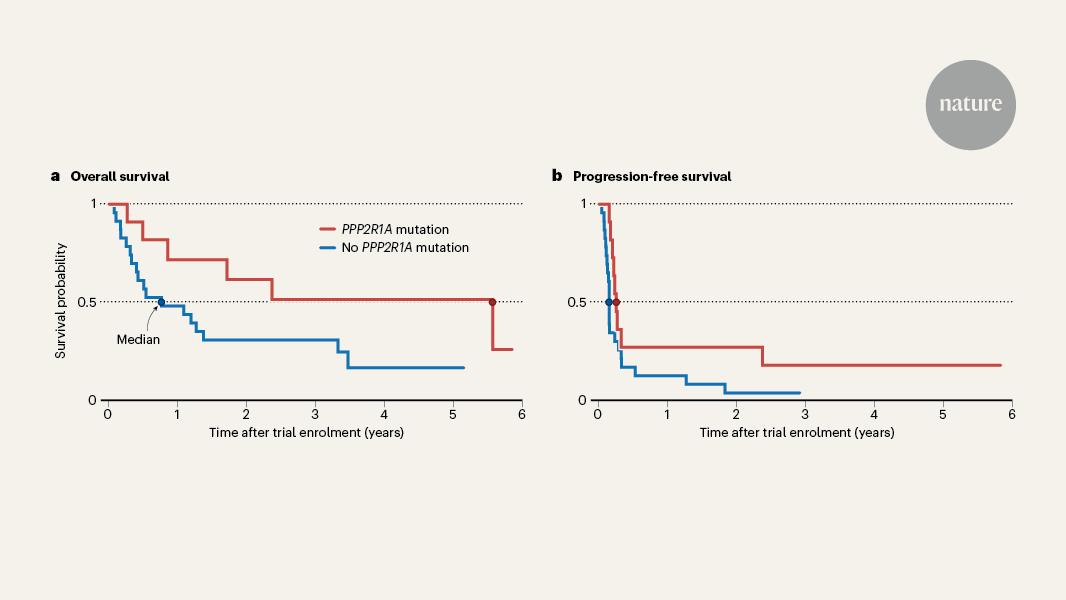Genetic mutation predicts survival after immunotherapy for ovarian cancer
IF 48.5
1区 综合性期刊
Q1 MULTIDISCIPLINARY SCIENCES
引用次数: 0
Abstract
Women with a rare type of ovarian cancer have prolonged survival after receiving immune-checkpoint blockade if their tumour cells carry a mutation in the gene PPP2R1A. Women with a rare type of ovarian cancer have prolonged survival after receiving immune-checkpoint blockade if their tumour cells carry a mutation in the gene PPP2R1A.

基因突变预测卵巢癌免疫治疗后的生存
患有一种罕见类型卵巢癌的女性,如果她们的肿瘤细胞携带PPP2R1A基因突变,在接受免疫检查点阻断后,她们的生存期延长。
本文章由计算机程序翻译,如有差异,请以英文原文为准。
求助全文
约1分钟内获得全文
求助全文
来源期刊

Nature
综合性期刊-综合性期刊
CiteScore
90.00
自引率
1.20%
发文量
3652
审稿时长
3 months
期刊介绍:
Nature is a prestigious international journal that publishes peer-reviewed research in various scientific and technological fields. The selection of articles is based on criteria such as originality, importance, interdisciplinary relevance, timeliness, accessibility, elegance, and surprising conclusions. In addition to showcasing significant scientific advances, Nature delivers rapid, authoritative, insightful news, and interpretation of current and upcoming trends impacting science, scientists, and the broader public. The journal serves a dual purpose: firstly, to promptly share noteworthy scientific advances and foster discussions among scientists, and secondly, to ensure the swift dissemination of scientific results globally, emphasizing their significance for knowledge, culture, and daily life.
 求助内容:
求助内容: 应助结果提醒方式:
应助结果提醒方式:


